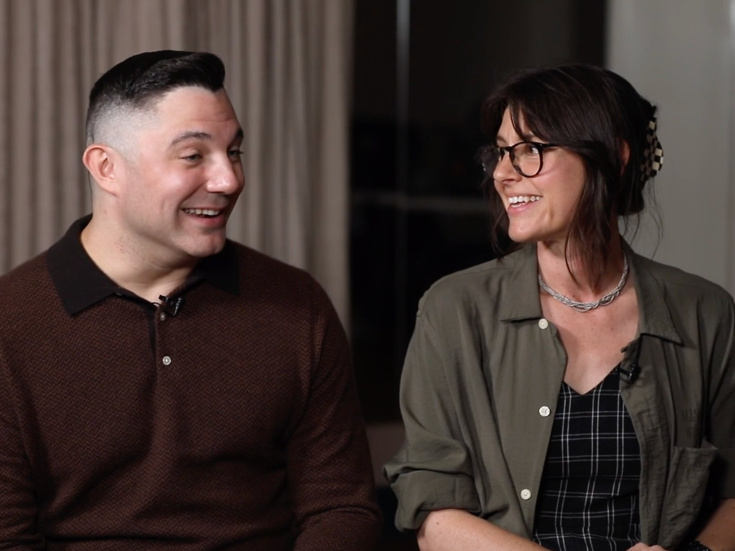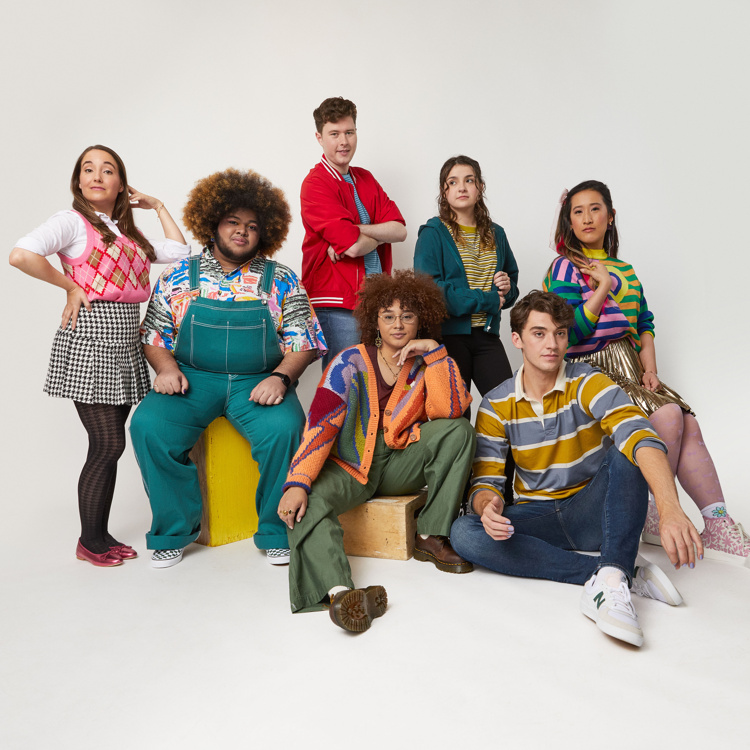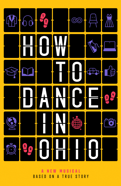How to Dance in Ohio Scribes Jacob Yandura and Rebekah Greer Melocik Bring New Sensibilities to Old-Guard Wisdom

“If you want to write musical theater, you have to create history.”
Only a legend like Harold Prince could pull off such a stately and inscrutable aphorism. But it’s sentiments like these, tinged with golden-age romanticism, that inspire new generations of theater-makers to try their luck on Broadway—a place where innovation can sometimes feel more like a gamble than a calling card.
Before his passing in 2019 at the age of 91, Prince—amasser of Tony Awards and producer of Broadway giants like Fiddler on the Roof, Cabaret and The Phantom of the Opera—helped water an early seed of an idea by the up-and-coming writing team, Jacob Yandura and Rebekah Greer Melocik. That project, How to Dance in Ohio, is now in performances at Broadway’s Belasco Theatre and has been one of the most talked-about additions to the 2023-24 season.

Based on Alexandra Shiva’s 2015 documentary of the same name, How to Dance in Ohio follows a group of young adults on the autism spectrum as they gear up for their first spring formal dance. “I found the documentary on HBO one night, and I thought it was such a cool thing,” says composer Yandura to Broadway.com Managing Editor Beth Stevens on The Broadway Show. “We were looking for a new project at the time and so we were watching…documentaries and films and reading The New Yorker and trying to find something.” Melocik, who pens the musical’s book and lyrics, remembers. “Jacob watches it and I get an email late that night that's just like, ‘Stop everything you're doing. You have to watch this documentary immediately.’”
It was only after a happenstance introduction to one of Prince’s mentees, producer Ben Holtzman (now of P3 Productions, one of How to Dance in Ohio’s Broadway producers), that Yandura and Melocik learned that the documentary they fell in love with was actually dedicated to Prince’s granddaughter Lucy Chaplin, whose own coming-of-age with autism inspired the project. Holtzman would be the one to connect them with Prince. And Melocik would later learn how truly right-place-right-time she and Yandura were with their musical pitch: “The day after Prince of Broadway opened, Hal said to Ben in the office, ‘I want my next show to be about autistic people.’”
Prince of Broadway was a musical revue of Prince’s career highlights that ran at the Samuel J. Friedman Theatre for a short time in 2017. It was also the last show he would ever direct on Broadway. But in the final two years of his life, he passed along bits of wisdom to “the kids” (as he affectionately called Yandura and Melocik) whose vision serendipitously collided with his own. He directed them to find the tone of the piece through the opening number and gave them creative leave to deviate from the specifics of the documentary in service of their own story. He also enjoyed motivating with imperious charm.
“He looked at me and he goes, ‘Jacob—be Bernstein,’” Yandura laughingly recalls, mimicking Prince’s unflinching stare and suggesting the forehead famous for buttressing a pair of thick-rimmed glasses. The command may have been hyperbolic, but Yandura took it as a directive to “create something that is totally you, that is unlike anything we've heard before.”
"He looked at me and he goes, ‘Jacob—be Bernstein.’" –Jacob Yandura
As the composing team plays their song “Unlikely Animals” in a special performance for The Broadway Show, you can hear the results—music with personality, specificity and a point of view. And if you lean in, you can also hear an impossibly thin needle being threaded: “How does song function with a character who is perhaps so shy and introverted that they can't even say three words to their friends?” says Melocik, summarizing the puzzle that How to Dance in Ohio has been. “How do we find the lyric to express what's happening internally?”
Yandura and Melocik’s answers are not Bernstein’s but their own. “Music in itself is universal. I think the universal need of wanting to connect with someone, another human being, and that idea of building community together was so sustainable to me,” says Yandura about composing the score. “Just meeting you now. ‘Hi, how are you?’ That's hard for a lot of people. And so the beauty of bringing us all together is really what it's saying to me.”
That spirit of connection pervades the whole production, which, in a first for Broadway, is featuring a cast of openly autistic performers. “She's always said it's a piece of activism as well,” says Yandura, giving credit for this holistic mission of representation to Sammi Cannold—the director who’s picked up the torch Prince left behind. “If we're not going to cast these characters authentically with autistic actors, then we're not going to do it,” he adds, channeling Cannold. We'll never know if this is creating history as Prince imagined it. But the way “the kids” are making history would surely suit him just fine.
